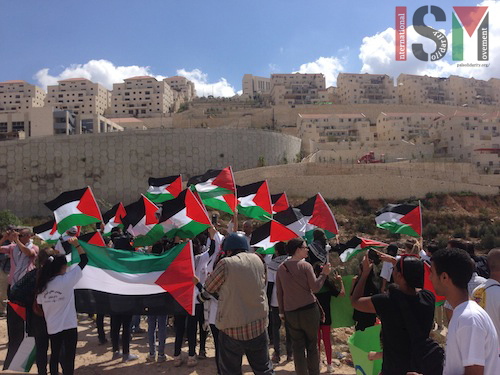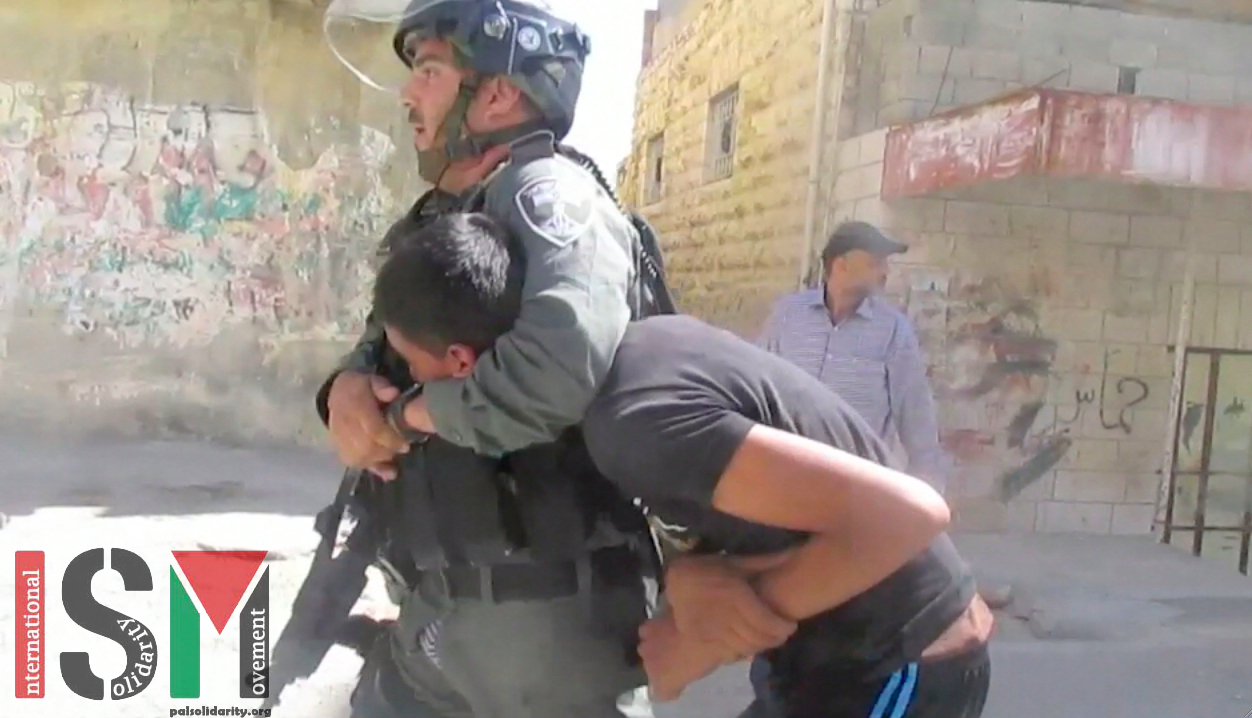-
VIDEO: Israeli forces use violence against unarmed demonstrators attempting to plant olive sapplings in Wadi Foukeen
26th September 2014 | International Solidarity Movement, Khalil team | Wadi Foukeen, Occupied Palestine Wadi Foukeen is a Palestinian village just west of Bethlehem with a population of approximately 1,250 people. A weekly Friday demonstration has been organized by the village community against the Israeli occupation and in response to the recent land grab of 4,000 […]
-
Two young Palestinians arrested and abused
24th September 2014 | International Solidarity Movement, Khalil team | Hebron, Occupied Palestine Monday afternoon in Hebron, two young Palestinian men were arrested and abused north of Qeitun after being falsely accused of stone throwing. 21-year-old Muhammad Ghaleb Abu Sbeih was walking home from work when soldiers from the Israeli military force arrested him. Six boys had […]
-
VIDEO: Israeli forces arrest two children and fire 29 rounds of tear gas at schoolchildren
23rd September 2014 | International Solidarity Movement, Khalil team | Hebron, Occupied Palestine Today at Salaymeh checkpoint in Hebron, Israeli forces fired 29 rounds of tear gas and 5 stun grenades at children going to school. The morning started off peaceful as children passed through the checkpoint but as word spread that two Palestinians had been […]
Action Alert An Nabi Saleh Apartheid Wall Arrests BDS Bethlehem Bil'in Cast Lead Demonstration Denial of Entry Ethnic Cleansing Farmers Gaza Global Actions Hebron House Demolition International law Israeli Army Jerusalem Live Ammunition Nablus Ni'lin Prisoner Ramallah Rubber-coated steel bullets Settlement Settlers Settler violence Tear-Gas Canister Video



